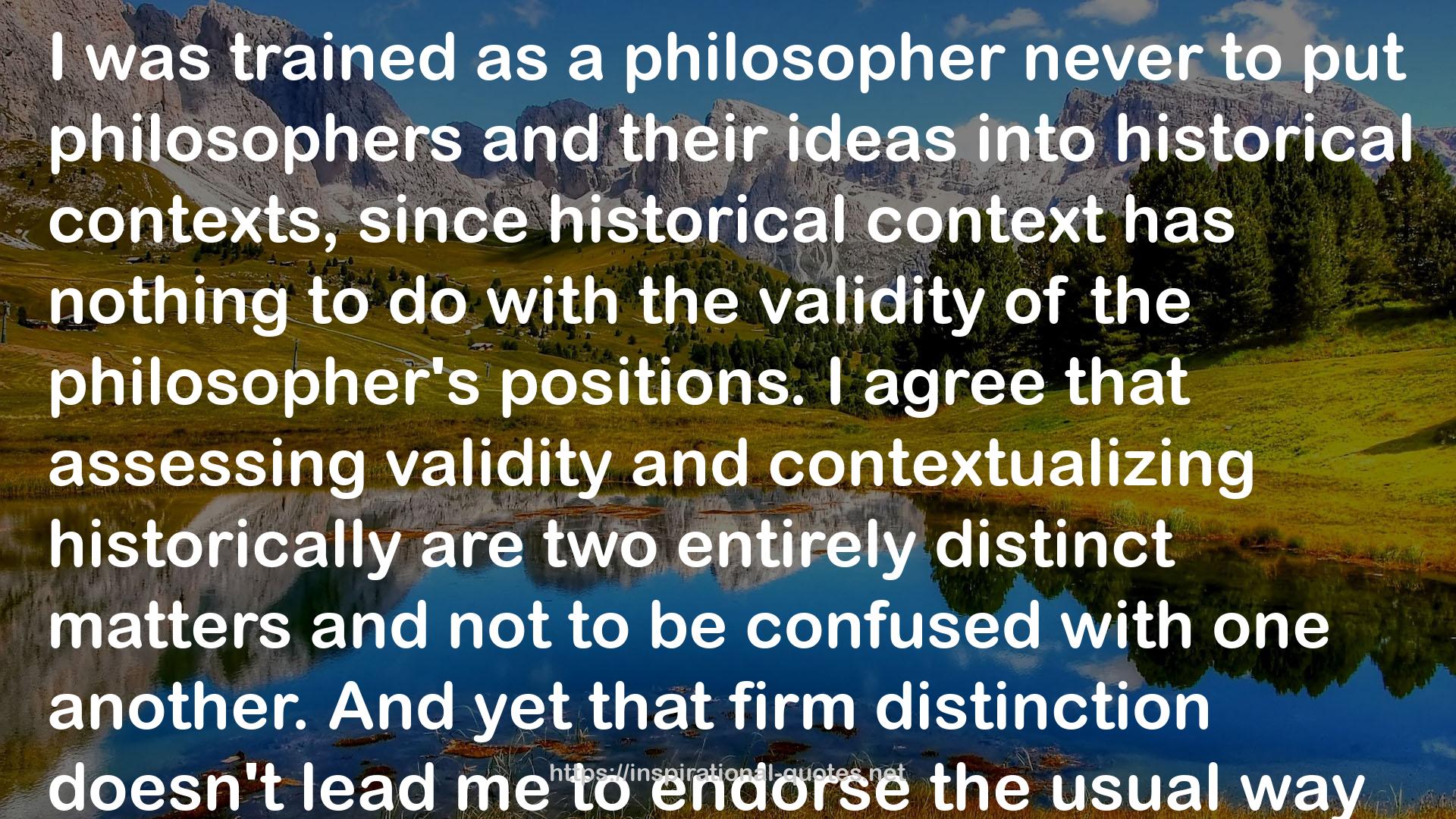" I was trained as a philosopher never to put philosophers and their ideas into historical contexts, since historical context has nothing to do with the validity of the philosopher's positions. I agree that assessing validity and contextualizing historically are two entirely distinct matters and not to be confused with one another. And yet that firm distinction doesn't lead me to endorse the usual way in which history of philosophy is presented. ... The philosophers talk across the centuries exclusively to one another, hermetically sealed from any influences derived from non-philosophical discourse. The subject is far more interesting than that.
... When you ask why did some particular question occur to a scientist or philosopher for the first time, or why did this particular approach seem natural, then your questions concern the context of discovery. When you ask whether the argument the philosopher puts forth to answer that question is sound, or whether the evidence justifies the scientific theory proposed, then you've entered the context of justification. Considerations of history, sociology, anthropology, and psychology are relevant to the context of discovery, but not to justification. You have to keep them straight.... ...(T)he assessment of those intuitions in terms of the argument's soundness isn't accomplished by work done in the context of discovery. And conversely, one doesn't diminish a philosopher's achievement, and doesn't undermine its soundness, by showing how the particular set of questions on which he focused, the orientation he brought to bear on his focus, has some causal connection to the circumstances of his life (pp. 160-161). "
― Rebecca Goldstein , Plato at the Googleplex: Why Philosophy Won't Go Away
